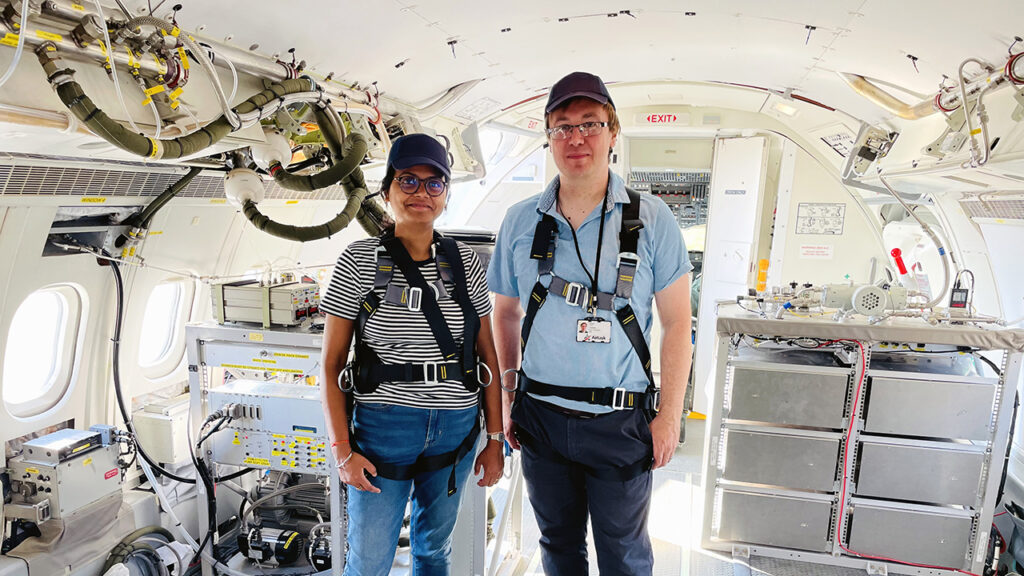
Research Runway: Tracking harmful air pollutants over the West Midlands
In 2023 the FAAM Airborne Laboratory launched a unique opportunity for environmental researchers to use the specially adapted research aircraft.
Our scheme, called Research Runway, allows researchers at every stage of their career to access a world-leading observation platform to study topics ranging from climate change and severe weather to air pollution.
Research Runway provides up to 10 flying hours onboard the FAAM Airborne Laboratory for campaign ideas set to take flight over summer 2023 – summer 2024.
There were three Research Runway projects, which involved early career researchers and new facility users from the University of Reading, Royal Holloway at the University of London, and University of Birmingham are taking to the skies.
In this article we focus on the Research Runway project known as BATS, which was led by the University of Birmingham in early 2024.
Project : Birmingham Aerosol Transport Study (BATS)
The Birmingham Aerosol Transport Study (BATS) investigated the levels and sources of fine particulate matter, a harmful air pollutant, in the West Midlands region of England.
With 29,000 deaths per year in the UK attributed to fine particulate matter, the BATS project set out to understand the sources of fine particles in the West Midlands urban region – including the role of regional transport of particulates between towns and cities.
The BATS scientists worked with the FAAM Airborne Laboratory’s research aircraft to measure fine particulate matter inflow and outflow from around Birmingham and beyond. The team will use their measurements to calculate how much fine particulate matter was being emitted from within the region, compared to how much was being received from other parts of the country or further afield.
Data collected by the aircraft crew will also be analysed alongside ground-based observations from the Birmingham Air Quality Supersite. This will enable the researchers to build a better understanding of the upwind sources of fine particulate matter and their influence on the West Midlands urban area. These data will be shared with the West Midlands Combined Authority to support the implementation of their West Midlands Air Quality Framework.
